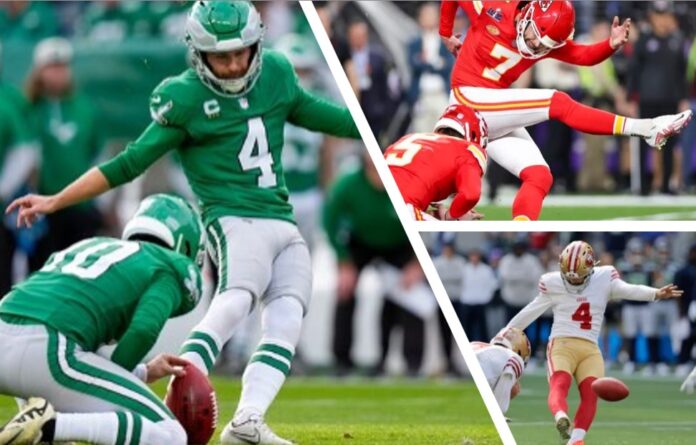There’s something undeniably captivating about NFL primetime. The roar of the crowd, the electric atmosphere, and the feeling that millions are watching every snap amplify the stakes. But for NFL kickers, this heightened pressure can become a crippling force, often leading to missed field goals and extra points that can swing the outcome of the game. Why do these professionals, who routinely nail kicks in practice and less-scrutinized games, falter under the bright lights of Thursday, Sunday, or Monday night?
The Psychology of Primetime
The most significant factor is undoubtedly the psychological impact of the spotlight. The pressure to perform flawlessly in front of a massive audience can be overwhelming. Kickers, by nature, are often individual performers in a team sport. Their success or failure hinges on a single moment, making them acutely aware of the consequences of each kick.
Increased Anxiety
The primetime stage can amplify anxiety levels, leading to physical tension, rushed movements, and a breakdown in technique. The internal narrative shifts from focusing on the process to dwelling on the potential for failure.
Overthinking the Technique
A kicker’s success relies on muscle memory and a consistent routine. Under pressure, they may start overthinking their mechanics, leading to hesitation and inconsistency.
Fear of Failure
The fear of letting down the team, the city, and the millions watching can be paralyzing. This fear can manifest as a tightening of muscles, altering the kicker’s natural rhythm and leading to a shanked or underpowered kick.
Environmental Factors
While the psychological impact is paramount, environmental factors can also contribute to primetime struggles.
Hostile Crowds
Road games, especially in intense rivalry matchups, amplify the pressure. Opposing fans can create a cacophony of noise and distractions, making it difficult for kickers to maintain focus and execute their routine.
Unfamiliar Stadiums
Different stadiums have varying field conditions, wind patterns, and lighting, all of which can subtly impact a kicker’s performance.
Game Flow
Primetime games often feature closer scores and more intense competition, leading to higher-pressure situations and fewer opportunities for kickers to redeem themselves after a miss.
Statistical Evidence
While not definitively conclusive, anecdotal evidence and some statistical analyses suggest a correlation between primetime games and missed kicks. Studies have shown that field goal percentages tend to dip slightly during nationally televised games, particularly for less experienced kickers.
Addressing the Problem
Coaches and teams are increasingly aware of the “primetime pressure” phenomenon and are implementing strategies to help kickers cope.
Mental Toughness Training
Teams are incorporating mental skills training into their programs, teaching kickers techniques for managing anxiety, focusing on the process, and visualizing success.
Simulating Pressure Situations
Practices are designed to simulate high-pressure game situations, allowing kickers to practice under duress and develop coping mechanisms.
Building Confidence
Coaches and teammates provide constant support and encouragement, reinforcing the kicker’s abilities and building their confidence.
Conclusion
The “primetime pressure cooker” is a real phenomenon that can impact NFL kickers’ performance. While the psychological impact of the spotlight is the primary driver, environmental factors and game flow also play a role. By understanding the challenges kickers face and implementing strategies to address them, teams can help their specialists overcome the pressure and deliver when it matters most. As fans, we should remember the immense pressure these athletes face and offer support, even when they occasionally falter under the bright lights. After all, even the best kickers are human, and the weight of the world sometimes rests squarely on their shoulders under the primetime glare.


